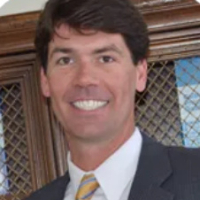 Tahoe City DUI-DWI Lawyers, California
Tahoe City DUI-DWI Lawyers, California
Sponsored Law Firm
-
 x
x

Click For More Info:
-
Keches Law Group
122 Dean Street Taunton, MA 02780» view mapSocial Security, Personal Injury, Workers Comp. Protecting Your Rights
Our team of experienced personal injury attorneys has over 130 years of combined experience representing individuals and families injured due to the negligence of others.
800-713-8650
Not enough matches for Tahoe City DUI-DWI lawyer.
Below are all Tahoe City Criminal lawyers.
Sponsored Lawyers
1-1 of 1 matches
DUI-DWI, Criminal
Rob L. Woelfel is the sole criminal attorney for the Woelfel Law Firm, where he combines zeal, pragmatism, and personalization for each client’s case; He has seen ample success in criminal cases involving murder, DUI, sexual assault, robbery, narcotics offenses, and juvenile crimes, amongst others. A respected trial lawyer with nearly two decades of criminal law experience, Rob aims to provide exceptional results. Rob received his admittance into the California Bar Association in 2007, where he went on to work as a prosecutor. He left prosecution for defense and became a founding partner in the civil rights litigation firm Loughrey & Woelfel LLP. Around thirteen years ago, Rob moved north and established his firm Woelfel Law where he practices today. He is a member of the National Association of Criminal Defense Lawyers and The American Trial Lawyers Association. After working in several areas of criminal defense, his primary focus has shifted to DUIs, though he still works on a variety of misdemeanor and felony defense cases. He represents clients all over northern California in various counties, El Dorado, Placer, Mono, Sacramento, Alpine, and more. One of his most revered cases was the reversal of Ms. Susan Greenburg’s first-degree murder conviction, which led to her release after 16 years of wrongful incarceration. Rob can be seen in the documentary “Abused” regarding the Greenburg case. When he is not challenging prosecutors in the courtroom, he enjoys competitive sailing and spending time with his wife and four children. He has made positive relationships with several DAs, court officials and staff, and local legal agencies.
(more)


 Sean Flaherty Taunton, MA
Sean Flaherty Taunton, MA AboutKeches Law Group
AboutKeches Law Group Practice AreasExpertise
Practice AreasExpertise


